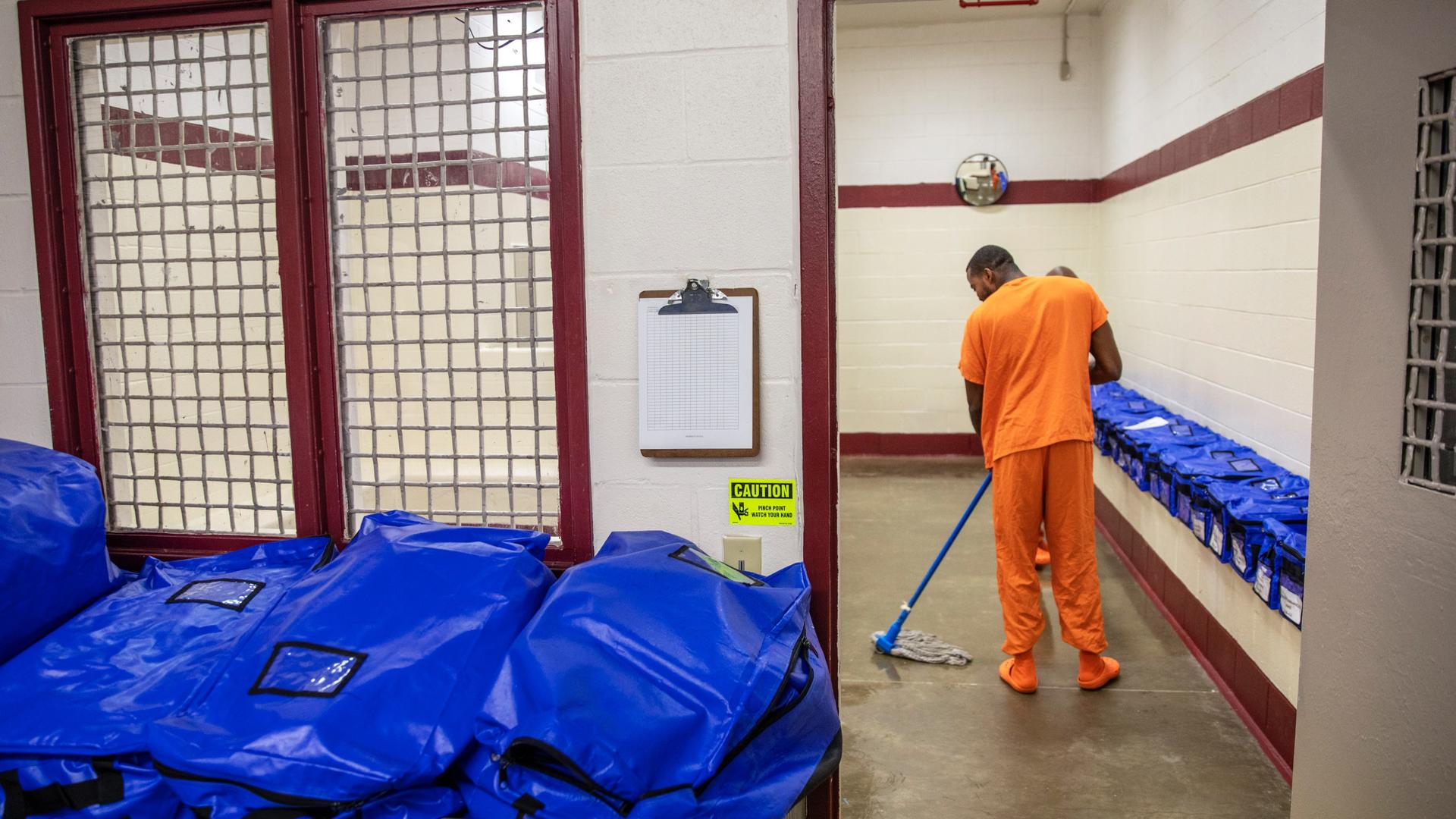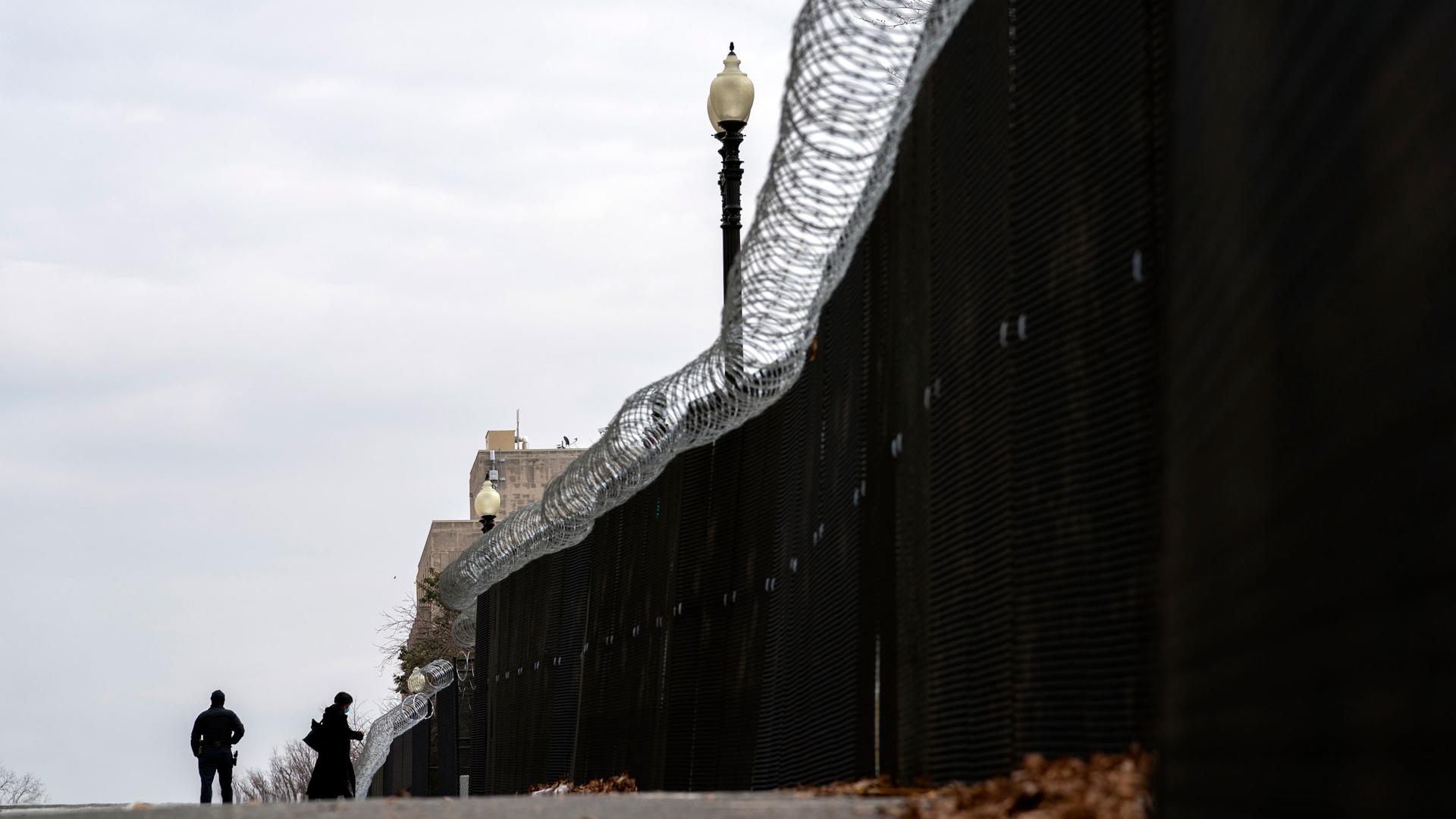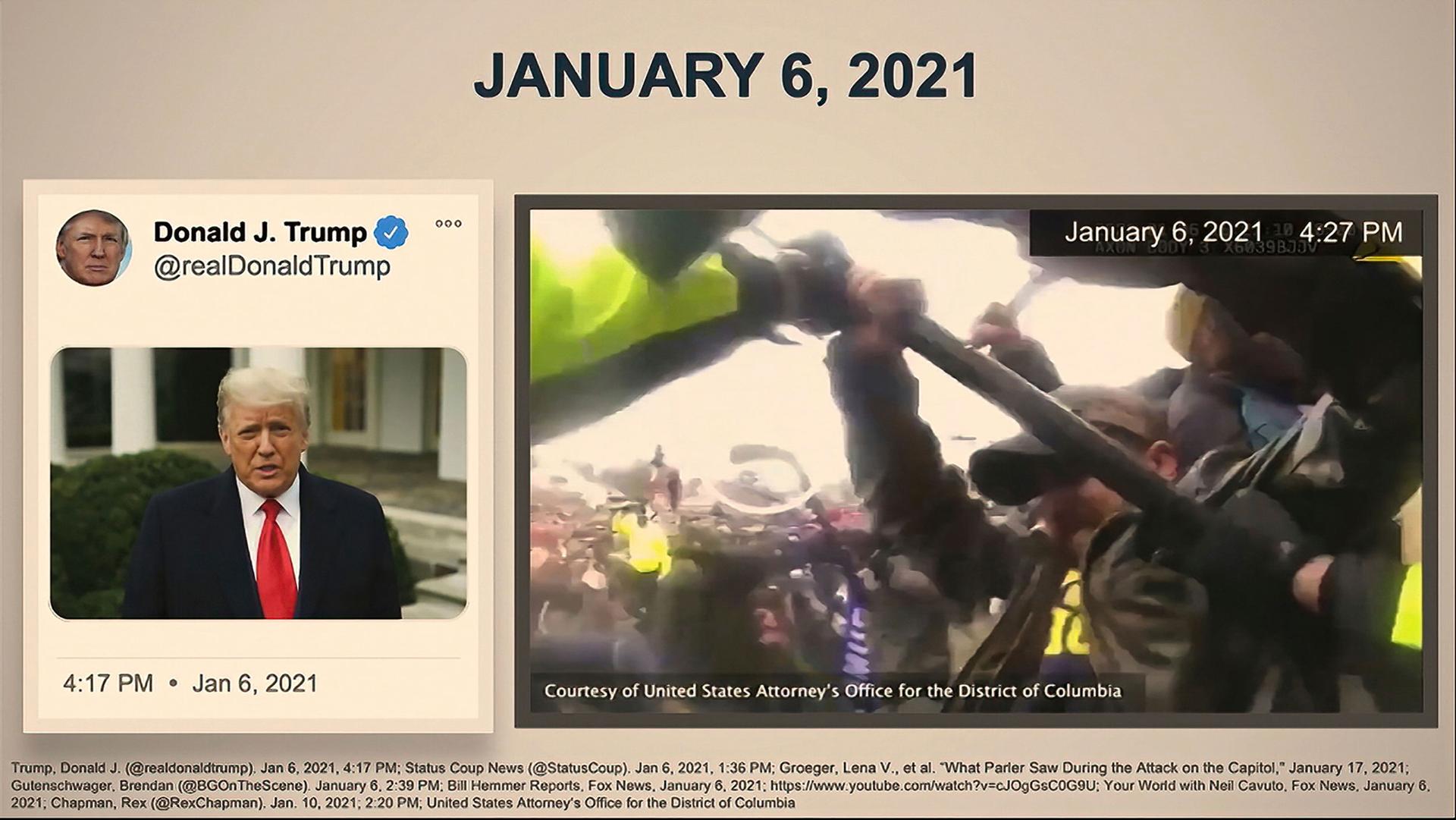House prosecutors set to wrap their impeachment case against Trump
In this image from video, a video from Donald Trump is paired with police bay camera footage, as it is shown to US Senators as House impeachment manager Rep. Joaquin Castro speaks during the second impeachment trial of former President Donald Trump, Feb. 10, 2021.
Top of The World — our morning news roundup written by editors at The World. Subscribe here.
On the second day of the impeachment trial of former President Donald Trump, House impeachment managers introduced never-before-seen security camera footage that illustrated how close the rioters came to lawmakers in the House and Senate chambers during the Jan. 6 insurrection at the US Capitol. The footage showed what many lawmakers described as shocking violence. Wednesday was the first of two days for the nine impeachment managers to present their case. They are expected to wrap up their case Thursday, when the floor turns to Trump’s defense.
Since Jan. 6, and while the impeachment trial continues, security is still at heightened levels outside the Capitol in Washington, DC, with the presence of National Guard troops and fencing with razor wire surrounding the complex. But how long will these enhanced security measures continue? And, how did the Capitol breach change the state of US national security?
Speaking with The World’s Marco Werman, retired Navy admiral and former NATO Supreme Allied Commander James Stavridis said that the presence of heavy policing at the Capitol will be determined by the FBI’s assessment of the security risk. The riot has drawn on the military to take an unprecedented inward look at issues of extremism and white supremacy within its ranks.
“Secretary of Defense Lloyd Austin has asked for a 60-day stand down during which every unit in the military will take a day and look at the challenges posed by extremism [and] white supremacy. Has that penetrated the ranks of the Department of Defense? I don’t think so to a level of national concern. But certainly it’s worth looking at that, looking at municipal law enforcement,” Stravridis said.
What The World is following
New Zealand Indigenous lawmaker Rawiri Waititi, co-leader of Maori Party, has won his battle against wearing a tie in the New Zealand Parliament. Waititi, who has described ties as a “colonial noose,” walked into parliament Tuesday wearing a hei-tiki traditional pendant around his neck, which led to sparring with Speaker of the House Trevor Mallard over dress code. On Wednesday, Mallard changed course after hearing from a subcommittee that debated whether a hei-tiki constituted business attire. Waititi praised the rule change as a win for Maori and Indigenous people around the world.
Loujain al-Hathloul, one of Saudi Arabia’s most prominent women’s rights activists who campaigned for the right for women to drive and an end to the kingdom’s male guardianship system, has been released from jail after being held for 1,001 days. In December 2020, Hathloul was sentenced to a nearly six-year jail term on terrorism-related charges. Hathloul had already been detained, with stints in solitary confinement since 2018, in a case that has drawn international condemnation of Saudi Arabia’s human rights record.
From The World
Immigrants, rights activists call on Biden to end private detention

Last month President Joe Biden instructed the Department of Justice to end contract renewals with private prisons as a first step to end racial disparities and pave the way to fair sentencing.
But Biden, who ran on promises to make sweeping changes to immigration policy, left private immigration detention untouched, allowing the Department of Homeland Security to continue renewing contracts with these private facilities, which house about 80% of immigrants in detention centers. Advocates say that ending the migrant detention system is one more piece of the puzzle in achieving racial justice and ending migrant abuse.
French report reignites debate about colonialism in Algeria

Like the US, France is navigating political disagreements about its history and their relationship to modern issues of race.
Benjamin Stora, a prominent French historian of Algerian colonial history, delivered a government-commisioned report late last month, and it has a number of recommendations, such as addressing colonialism more directly in French curricula. But the public reaction has focused on what it doesn’t say: Nowhere in its 146 pages does it advise that France apologize or commit to reparations.
Global hit
Playing for Change has artists from around the globe playing together virtually. The project has just dropped a new track for 2021: a cover of Bob Marley’s “Get Up, Stand Up.” Some of the artists on this latest track (?) include Songhoy Blues, from Mali, guitarist Louis Mhlanga, from Zimbabwe, Keith Richards, from the Rolling Stones, and even Bob Marley’s daughter, Cedella Marley, and her son, Skip Marley.
In case you missed it
Listen: As the impeachment trial gets underway, security in the US Capitol is on high alert

As prosecutors from the US House made their case for the impeachment of former President Donald Trump, security was on high alert in Washington. There are more police and National Guard and access to the Capitol building is tight — but how long will this continue? And, opposition activists and lawmakers are demanding that Haitian President Jovenel Moïse step down. Also, an ancient conch shell thought to be a drinking vessel has now been determined to be a musical instrument — the earliest known conch shell horn.
Don’t forget to subscribe to The World’s Latest Edition podcast using your favorite podcast player: RadioPublic, Apple Podcasts, Stitcher, Soundcloud, RSS.
